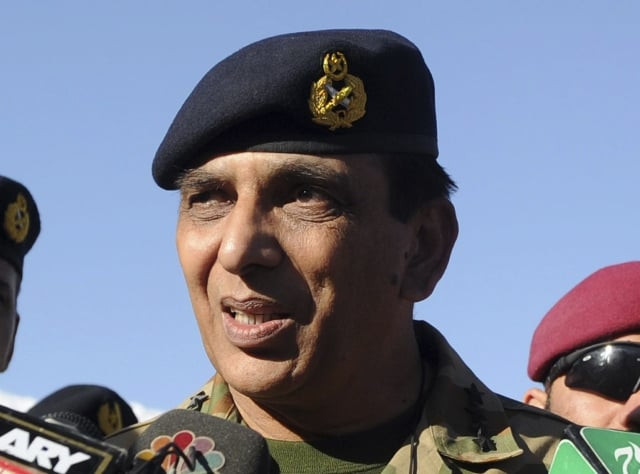Pre-2014 plans: General Kayani makes Afghan peace ‘top priority’
Army chief is backing dialogue due to fears that end of mission could energise resilient insurgency.

General Ashfaq Kayani is backing dialogue partly due to fears that the end of the US combat mission in Afghanistan in 2014 could energise a resilient insurgency straddling the shared frontier, according to commanders deployed in the region.
“There was a time when we used to think we were the masters of Afghanistan. Now we just want them to be masters of themselves so we can concentrate on our own problems,” said a senior Pakistani military officer stationed in South Waziristan, part of the tribal belt that hugs the Afghan border.
“Pakistan has the power to create the environment in which a grand reconciliation in Afghanistan can take place,” he said, speaking in the gritty town of Wana. “We have to rise to the challenge. And we are doing it, at the highest level possible.”

On December 7, Kayani hammered home his determination to support a negotiated end to the war in Afghanistan at a meeting of top commanders at the army headquarters in Rawalpindi.
“He (Kayani) said Afghan reconciliation is our top priority,” said a Pakistani intelligence official, who was briefed about the meeting.
Major progress with Kayani’s help could enable US President Barack Obama to say his administration managed to sway Pakistan – often seen as an unreliable ally – to help achieve a top US foreign policy goal.
Afghan officials, who have long suspected Pakistan of funding and arming the Taliban, question, whether Kayani genuinely supports dialogue or is merely making token moves to deflect Western criticism of Pakistan’s record in Afghanistan.
Relations between Taliban commanders and Pakistan’s security establishment have increasingly been poisoned by mistrust, however, raising questions over whether Kayani’s spymasters wield enough influence to nudge them towards the table.
Nevertheless, diplomats in Islamabad argue that Pakistan has begun to show markedly greater enthusiasm for Western-backed attempts to engage with Taliban leaders. Western diplomats, who for years were sceptical about Pakistani promises, say Islamabad is serious about promoting stability in Afghanistan.
“They seem to genuinely want to move towards a political solution,” said an official from an EU country. “We’ve seen a real shift in their game-plan at every level. Everyone involved seems to want to get something going.”
Change in the mindset
Kayani has earned a reputation as a thoughtful commander who has curbed the military’s tendency to meddle overtly in politics. With his support, Foreign Minister Hina Rabbani Khar has held repeated rounds of discussions with Afghan counterparts, and in November Pakistan released more than a dozen Taliban prisoners.
The move aimed to reassure the Afghan government and Pakistan’s allies of Islamabad’s good faith and telegraph to the Taliban that Pakistan is serious about facilitating talks.
“There is a change in political mindset and will on the Pakistani side,” Salahuddin Rabbani, the chairman of Afghanistan’s High Peace Council, told Reuters. “We have reason to be cautiously optimistic.”
Published in The Express Tribune, December 24th, 2012.



1724319076-0/Untitled-design-(5)1724319076-0-208x130.webp)















COMMENTS
Comments are moderated and generally will be posted if they are on-topic and not abusive.
For more information, please see our Comments FAQ